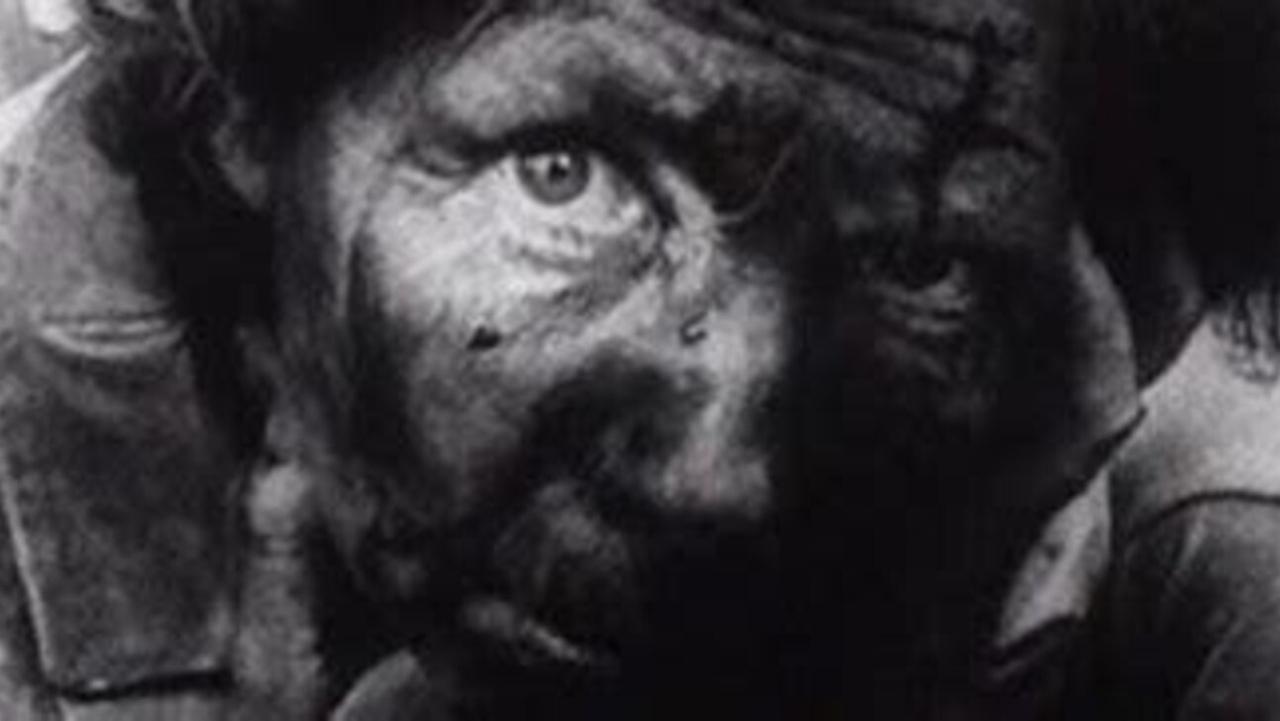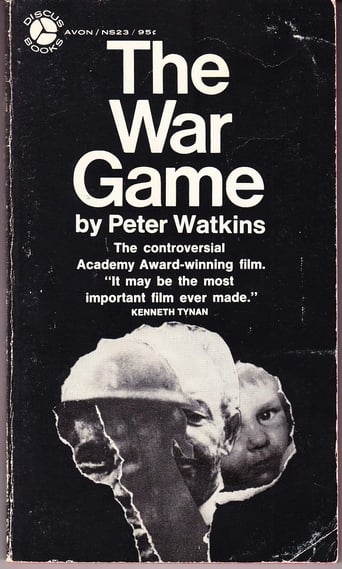

Docudrama, science fiction, and educational broadcasting collide in Peter Watkins' cry against the horrors of nuclear war. The unsteady camera films the disturbing action, the haunting stares of burned survivors of the massive weapons some countries seem to throw at one another in a disgustingly nonchalant manner creep up onto your television. Children bloodied and burned, moans of pain surrounding the empty atmosphere. This is essentially a post apocalyptic world, and it is very much possible."The War Game" will remain relevant as long as war itself remains relevant; it is an important reminder of the great harm that violence upon another civilization will almost always leave to damaging civilian causalities. This is a sad, shocking fact of life that people often gloss over, but they will be reminded of its significance after viewing this masterpiece. The booming, monotone narration contrasts powerfully with the unspeakably horrific imagery that flickers before us. There is no need to go into detail, for this a film that must be seen by everyone. It is among the most realistic, brutal, and brilliant portrayals of a world at war that you will ever see.
... View MoreI had heard about this film for ages, and I was glad to read it was featured in the book 1001 Movies You Must See Before You Die, I always assumed it was a documentary focusing on World War II, I had no idea it was a fictionalised feature about something completely different, so I looked forward to it. Basically, filmed in black and white, and lasting only fifty minutes, this is a realistic approach and insight into what would happen following the events of a Soviet Nuclear attack on Great Britain, i.e. the devastation and measures taken. In Soviet Vietnam the war stars after the Chinese invade, and the United States authorises tactical nuclear warfare against them, and West Berlin and Russia are forced into joining the battle as well, and this eventually leads to Britain being struck by missiles. The prelude to the attack sees residents of British cities forced into evacuation to the country, and the story centres on Rochester where a missile aimed at Gatwick Airport missed its target and struck, and the areas of Kent and Maidstone are seen to have been attacked as well. The missile explosions cause terrifying incidents and results, not just mass hysteria and chaos, but blinding light that effects many people's vision, a heat wave that melts the skin and in some cases eye balls, the spread of radiation poisoning that causes severe sickness, and of course the people are damaged psychologically which means the collapse of society. With the British Army and police are doing all they can to help those affected by the disasters, they are also forced into terrible acts in an effort to clear the ruin and stop any further incidents, such as burning corpses and shooting looters. Narrated by Michael Aspel and Dick Graham. At the time in 1965 it was meant to broadcast this film proved so controversial and shocking, it was called "too horrifying for broadcasting", that the film was shelved for a year, but when it was released in cinemas it gained reputation, but still didn't show in full on television until 1985. I can certainly see what all the fuss was about, it is very gritty and powerful film with the ability to shock with its realism and execution, and of course some gory effects, it probably caused many viewers to worry about being vaporised at any moment, but today it is remembered for its notoriety, and being a shocking but fascinating documentary drama. It won the Oscar for Best Documentary, Features, and it won the BAFTA for Best Short Film and the UN Award for director Peter Watkins. It was number 74 on The 100 Greatest Scary Moments, and it was number 33 on The 50 Greatest Documentaries. Very good!
... View MoreI was most surprised at how political this film was. It did not try to hide it's agenda like you sense from listening to BBC radio news, where only the facts that are relevant to their opinion are broadcast in a nice professional soothing manner. No, this film bashes you over the head with an agenda. What has the Catholic and Anglican Church got to do with World War 3? Well if you watch this movie, it seems they are the ones blessing a war! So is it a good re-enactment of nuclear war on England? I guess so, who can say, I would think it would be much worst. But it's political agenda minimizes any serious debate that it is a great film. The film demonizes NATO using tactical nukes if Berlin was overrun by the Eastern Bloc, well guess what, that's a flawed scenario to use because that's what prevented that from happening in the first place! Still I applaud that this film was made as nuclear war is horrific and needs to be dramatized, now maybe more then ever. I would like to see the impartial BBC do a remake of this film relevant to today's world. They could quote Imam's and Iranian Mullahs and Leaders, and then show what Tehran would look like after a nuclear attack. That would do the world a great service, and hopefully wake up more Iranians from what their leaders are driving them into.6 of 10 for the message that nuclear war is a no win situation, not a 10 of 10 because it's politically biased to a side that would have lost us the cold war if we had not stood tall.
... View MoreIt's the end of the world as we know it in this pseudo-documentary about nuclear nightmare coming to fruition in the sixties in a once typically quaint town in Great Britain. Peter Watkins, The War Game is a depressingly grim look at the aftermath of a nuclear attack that clearly favors the dead as the survivors rummage across a bleak lawless landscape starving and suffering. Watkins camera excellently mimics a cinema verite kind of documentary flare that effectively conveys a realistic scenario of chaos and destruction giving the film much of it's immediacy and power. With the exception of Pontecervo's The Battle of Algiers, it is probably the best staged and convincing documentary of the past fifty years.Living in a world of nuclear threat and mutually assured destruction is something we must live with every day. We can either choose to ignore it or take action through petition and protest to prevent it. Dr. Strangelove did a dance of death with it and Fail Safe more soberly destroyed NY City and Moscow. Both avoided detailing the aftermath of the slow death in favor of instant demise. We are not spared that in The War Game which details the after effects and the consequence of such action taken by the world powers that be. Its grim pacifistic message will make any hawk pause. No wonder the BBC didn't air it for twenty years.
... View More